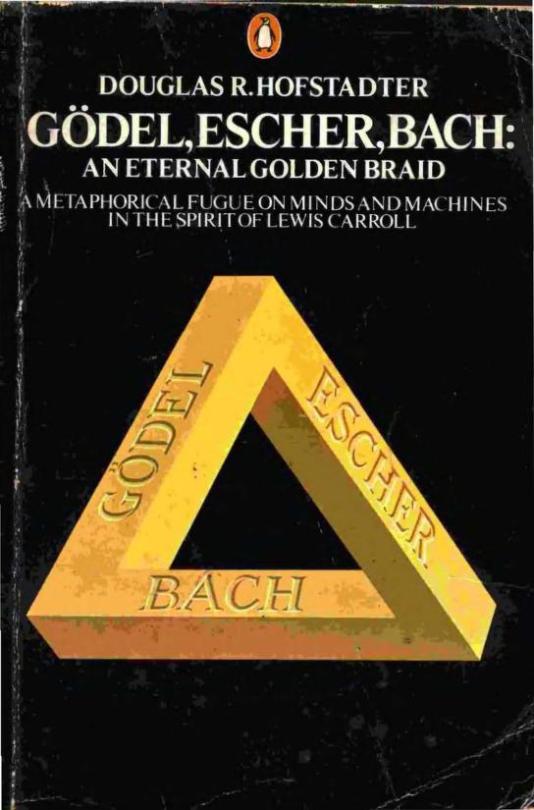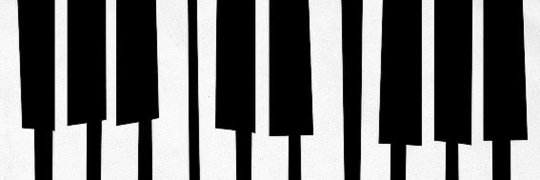#douglas r. hofstadter
Quote
The mathematician's sense of tension is intimately related to his sense of beauty, and is what makes mathematics worthwhile doing.
Douglas R. Hofstadter
#quote#douglas r. hofstadter#hofstadter#godel#kurt godel#godel escher bach#kurt gödel#m. c. escher#math#mathematics#mathematician#beauty#logic#reason
19 notes
·
View notes
Text
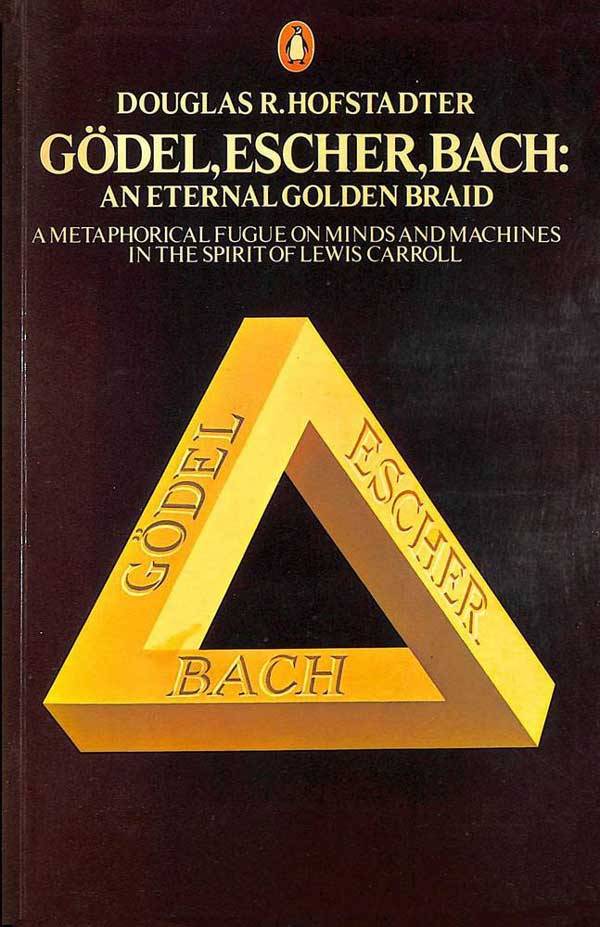
27 notes
·
View notes
Text
Books to read in autumn
Historical novels
Wolf Hall by Hilary Mantel: England in the 1520s
The Pillars of the Earth by Ken Follett: Building the most splendid Gothic cathedral the world has ever known
Outlander by Diana Gabaldon: A back-in-time Scottish romance
Company of Liars by Karen Maitland: A novel of the plague in the year 1348
The underground railroad by Colson Whitehead: Enslavement of African Americans through escape and flight
The God of small things by Arundhati Roy: A family drama in the 60s located in India
The Diary of a Young Girl by Anne Frank: A powerful reminder of the horrors of world war II
Fantasy
A Game of thrones by George R. R. Martin: A Fantasy epic run by politics, strong families, dragons
Red rising by Pierce Brown: A dystopian science fiction novel set in a future colony on Mars
Babel by R.F. Kuang: Student revolutions, colonial resistance, and the use of language and translation as the dominating tool of the British empire
Legends & Lattes by Travis Baldree: A fresh take on fantasy staring an orc and a mercenary
Jade City by Fonda Lee: A gripping Godfather-esque saga of intergenerational blood feuds, vicious politics, magic, and kungfu
Spinning Silver by Naomi Novik: A tale of hope and magic, with brave maidens and scary monsters
The Atlas six by Olivie Blake: A dark academic sensation following six magicians
Mysteries & Horror
The Gathering Dark: An Anthology of Folk Horror by various authors: Short stories perfect for the Halloween mood
Sorrowland by Rivers Solomon: The story of Vern, a pregnant teenager who escapes the cult Cainland
The Weird and the Eerie by Mark Fisher: A noted cultural critic unearths the weird, the eerie, and the horrific in 20th-century culture through a wide range of literature, film, and music
Holly by Stephen King: Disappearances in a midwestern town
Vampires of El Norte by Isabel Cañas: Supernatural western
The good house by Tananarive Due: A classic New England tale that lays bare the secrets of one little town
Nonfiction
Ghostland: An American History in Haunted Places by Colin Dickey: The trail of America's ghosts
What moves the dead by T. Kingfisher: A gripping and atmospheric retelling of Edgar Allan Poe's classic "The Fall of the House of Usher
South to America: A Journey Below the Mason Dixon to Understand the Soul of a Nation by Imani Perry: A journey through the history, rituals, and landscapes of the American South—and a revelatory argument for why you must understand the South in order to understand America
All the living and the dead by Hayley Campbell: An exploration of the death industry and the people―morticians, detectives, crime scene cleaners, embalmers, executioners―who work in it and what led them there
Gödel, Escher, Bach: An Eternal Golden Braid by Douglas R. Hofstadter: Gödel, Escher, Bach is a wonderful exploration of fascinating ideas at the heart of cognitive science: meaning, reduction, recursion, and much more
#autumn mood#writing#inspiration#history#autumn#fall season#autumn leaves#autumn aesthetic#dark fantasy#dark academia#books and reading#books#books & libraries#bookstagram#currently reading#booklr#reading#book recommendations#writingcommunity#creative writing#writeblr#fall vibes#october#autumn vibes#historical novel#fantasy#fairy tale#fantasy reader#nonfiction#mystery
95 notes
·
View notes
Text
Advance psychology books
Handbook of Social Psychology by Susan T. Fiske, Daniel T. Gilbert, and Gardner Lindzey
The Handbook of Psychological Assessment by Gary Groth-Marnat
Neuropsychological Assessment by Muriel Lezak
Handbook of Psychological Change by C. Robert Cloninger and Richard M. Steinberg
Clinical Neuropsychology: A Pocket Handbook for Assessment by Joel E. Morgan and Joseph H. Ricker
Cognitive Neuroscience: The Biology of the Mind by Michael S. Gazzaniga and Richard B. Ivry
Affective Neuroscience: The Foundations of Human and Animal Emotions by Jaak Panksepp
Developmental Psychopathology by Dante Cicchetti and Donald J. Cohen
The Handbook of Emotion by Michael Lewis, Jeannette M. Haviland-Jones, and Lisa Feldman Barrett
Abnormal Psychology: An Integrative Approach by David H. Barlow and V. Mark Durand
Theories of Psychotherapy and Counseling by Richard Sharf
Cognitive-Behavioral Therapy: Basics and Beyond by Judith S. Beck
Handbook of Positive Psychology by C. R. Snyder and Shane J. Lopez
Theories of Human Development by Barbara M. Newman and Philip R. Newman
Handbook of Child Psychology and Developmental Science edited by Marc H. Bornstein and Michael E. Lamb
Books to study about psychetrics
"An Unquiet Mind: A Memoir of Moods Madness" by Kay Redfield Jamison
"The Noonday Demon: An Atlas of Depression" by Andrew Solomon
"The Man Who Mistook His Wife for a Hat" by Oliver Sacks
"The Mind's I: Fantasies and Reflections on Self and Soul" edited by Douglas R. Hofstadter and Daniel C. Dennett
"The Social Animal: The Hidden Sources of Love, Character, and Achievement" by David Brooks
"The Psychiatric Interview" by Daniel Carlat
"The Neuroscience of Psychotherapy: Building and Rebuilding the Human Brain" by Louis Cozolino
"The Age of Insight: The Quest to Understand the Unconscious in Art, Mind, and Brain, from Vienna 1900 to the Present" by Eric Kandel
"The Center Cannot Hold: My Journey Through Madness' by Elyn R. Saks
"The Brain that Changes Itself: Stories of Personal Triumph from the Frontiers of Brain Science" by Norman Doidge
"The Tell-Tale Brain: A Neuroscientist's Quest for What Makes Us Human" by V. S. Ramachandran
"Cognitive-Behavioral Therapy for Anxiety Disorders: Mastering Clinical Challenges" by Gillian Butler and Melanie Fennell
6 notes
·
View notes
Note
Favourite word in the English language?
This seems to be the kind of question that gets people arguing about whether something should be the definition of English, so let me offer my favorite definition of "English" (which I picked up from Douglas Hofstadter):
"English may be defined as a variety of spoken American English based upon a phonetic system (approximately that of New York, though it has been modified to adapt to the spoken patterns of the West-Midland states, California, and Texas) that uses a relatively small number of phonetic segments.
The phonetic system consists of the following:
All English consonants may be realized by one or more of the following approximant sounds (d, th, t, ʃ, ʒ, w):
-b, -v, -p, -t, -d, -f, -m, -ng, -n, -r, -v, -p, -t, -d, -f, -m, -n, -r, -v, -p, -t, -d, -f, -m, -r
All English consonants may be realized by one or more of the following non-approximate consonants (ʍ, ʃ, ʒ, c, k, g, ᵃ, ɟ, ŋ, p, t, d, f, m, r, v, l, w, wʰ, dʰ, tʰ, th, or ð):
.r,.z,.t,.s,.p,.tʰ,.dʰ,.fʰ,.mʰ,.pʰ,.tʰ,.dʰ,.fʰ,.mʰ,.pʰ,.tʰ
7 notes
·
View notes
Text
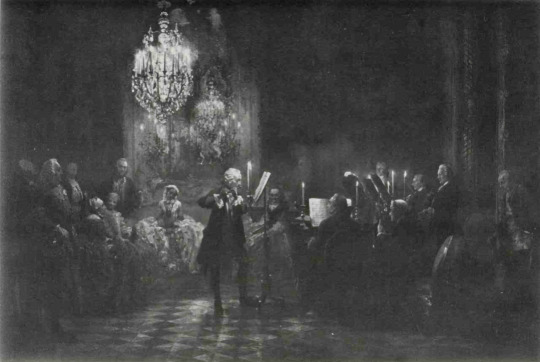
King Frederick holding court by performing his own flute solos is THE mood.
- Flute Concert in Sanssouci
by Adolph Von Menzel (1852)
Found in the Book
Godel, Escher, and Bach: An Eternal Golden Braid
by Douglas R. Hofstadter
3 notes
·
View notes
Link
Gödel, Escher, Bach: An Eternal Golden Braid by Douglas R. Hofstadter, ISBN-13: 978-0465026562 [PDF eBook eTextbook] Publisher: Basic Books; 20th Anniversary ed. edition (February 5, 1999) Language: English 824 pages ISBN-10: 0465026567 ISBN-13: 978-0465026562 A metaphorical fugue on minds and machines in the spirit of Lewis Carroll. Douglas Hofstadter’s book is concerned directly with the nature of “maps” or links between formal systems. However, according to Hofstadter, the formal system that underlies all mental activity transcends the system that supports it. If life can grow out of the formal chemical substrate of the cell, if consciousness can emerge out of a formal system of firing neurons, then so too will computers attain human intelligence. Gödel, Escher, Bach is a wonderful exploration of fascinating ideas at the heart of cognitive science: meaning, reduction, recursion, and much more. Twenty years after it topped the bestseller charts, Douglas R. Hofstadter’s Gödel, Escher, Bach: An Eternal Golden Braid is still something of a marvel. Besides being a profound and entertaining meditation on human thought and creativity, this book looks at the surprising points of contact between the music of Bach, the artwork of Escher, and the mathematics of Gödel. It also looks at the prospects for computers and artificial intelligence (AI) for mimicking human thought. For the general reader and the computer techie alike, this book still sets a standard for thinking about the future of computers and their relation to the way we think. Hofstadter’s great achievement in Gödel, Escher, Bach was making abstruse mathematical topics (like undecidability, recursion, and ‘strange loops’) accessible and remarkably entertaining. Borrowing a page from Lewis Carroll (who might well have been a fan of this book), each chapter presents dialogue between the Tortoise and Achilles, as well as other characters who dramatize concepts discussed later in more detail. Allusions to Bach’s music (centering on his Musical Offering) and Escher’s continually paradoxical artwork are plentiful here. This more approachable material lets the author delve into serious number theory (concentrating on the ramifications of Gödel’s Theorem of Incompleteness) while stopping along the way to ponder the work of a host of other mathematicians, artists, and thinkers. The world has moved on since 1979, of course. The book predicted that computers probably won’t ever beat humans in chess, though Deep Blue beat Garry Kasparov in 1997. And the vinyl record, which serves for some of Hofstadter’s best analogies, is now left to collectors. Sections on recursion and the graphs of certain functions from physics look tantalizing, like the fractals of recent chaos theory. And AI has moved on, of course, with mixed results. Yet Gödel, Escher, Bach remains a remarkable achievement. Its intellectual range and ability to let us visualize difficult mathematical concepts help make it one of this century’s best for anyone who’s interested in computers and their potential for real intelligence. –Richard Dragan Topics Covered: J.S. Bach, M.C. Escher, Kurt Gödel: biographical information and work, artificial intelligence (AI) history and theories, strange loops and tangled hierarchies, formal and informal systems, number theory, form in mathematics, figure and ground, consistency, completeness, Euclidean and non-Euclidean geometry, recursive structures, theories of meaning, propositional calculus, typographical number theory, Zen and mathematics, levels of description and computers; theory of mind: neurons, minds and thoughts; undecidability; self-reference and self-representation; Turing test for machine intelligence. Douglas R. Hofstadter is College of Arts and Sciences Professor of Cognitive Science and Computer Science at Indiana University, Bloomington, where he also directs the Center for Research on Concepts and Cognition. He is the author or co-author of nine books, including I Am a Strange Loop and Surfaces and Essences, and has contributed to ten more. He lives in Bloomington. What makes us different? • Instant Download • Always Competitive Pricing • 100% Privacy • FREE Sample Available • 24-7 LIVE Customer Support
0 notes
Link
Gödel, Escher, Bach: An Eternal Golden Braid by Douglas R. Hofstadter, ISBN-13: 978-0465026562 [PDF eBook eTextbook] Publisher: Basic Books; 20th Anniversary ed. edition (February 5, 1999) Language: English 824 pages ISBN-10: 0465026567 ISBN-13: 978-0465026562 A metaphorical fugue on minds and machines in the spirit of Lewis Carroll. Douglas Hofstadter’s book is concerned directly with the nature of “maps” or links between formal systems. However, according to Hofstadter, the formal system that underlies all mental activity transcends the system that supports it. If life can grow out of the formal chemical substrate of the cell, if consciousness can emerge out of a formal system of firing neurons, then so too will computers attain human intelligence. Gödel, Escher, Bach is a wonderful exploration of fascinating ideas at the heart of cognitive science: meaning, reduction, recursion, and much more. Twenty years after it topped the bestseller charts, Douglas R. Hofstadter’s Gödel, Escher, Bach: An Eternal Golden Braid is still something of a marvel. Besides being a profound and entertaining meditation on human thought and creativity, this book looks at the surprising points of contact between the music of Bach, the artwork of Escher, and the mathematics of Gödel. It also looks at the prospects for computers and artificial intelligence (AI) for mimicking human thought. For the general reader and the computer techie alike, this book still sets a standard for thinking about the future of computers and their relation to the way we think. Hofstadter’s great achievement in Gödel, Escher, Bach was making abstruse mathematical topics (like undecidability, recursion, and ‘strange loops’) accessible and remarkably entertaining. Borrowing a page from Lewis Carroll (who might well have been a fan of this book), each chapter presents dialogue between the Tortoise and Achilles, as well as other characters who dramatize concepts discussed later in more detail. Allusions to Bach’s music (centering on his Musical Offering) and Escher’s continually paradoxical artwork are plentiful here. This more approachable material lets the author delve into serious number theory (concentrating on the ramifications of Gödel’s Theorem of Incompleteness) while stopping along the way to ponder the work of a host of other mathematicians, artists, and thinkers. The world has moved on since 1979, of course. The book predicted that computers probably won’t ever beat humans in chess, though Deep Blue beat Garry Kasparov in 1997. And the vinyl record, which serves for some of Hofstadter’s best analogies, is now left to collectors. Sections on recursion and the graphs of certain functions from physics look tantalizing, like the fractals of recent chaos theory. And AI has moved on, of course, with mixed results. Yet Gödel, Escher, Bach remains a remarkable achievement. Its intellectual range and ability to let us visualize difficult mathematical concepts help make it one of this century’s best for anyone who’s interested in computers and their potential for real intelligence. –Richard Dragan Topics Covered: J.S. Bach, M.C. Escher, Kurt Gödel: biographical information and work, artificial intelligence (AI) history and theories, strange loops and tangled hierarchies, formal and informal systems, number theory, form in mathematics, figure and ground, consistency, completeness, Euclidean and non-Euclidean geometry, recursive structures, theories of meaning, propositional calculus, typographical number theory, Zen and mathematics, levels of description and computers; theory of mind: neurons, minds and thoughts; undecidability; self-reference and self-representation; Turing test for machine intelligence. Douglas R. Hofstadter is College of Arts and Sciences Professor of Cognitive Science and Computer Science at Indiana University, Bloomington, where he also directs the Center for Research on Concepts and Cognition. He is the author or co-author of nine books, including I Am a Strange Loop and Surfaces and Essences, and has contributed to ten more. He lives in Bloomington. What makes us different? • Instant Download • Always Competitive Pricing • 100% Privacy • FREE Sample Available • 24-7 LIVE Customer Support
0 notes
Link
Gödel, Escher, Bach: An Eternal Golden Braid by Douglas R. Hofstadter, ISBN-13: 978-0465026562 [PDF eBook eTextbook] Publisher: Basic Books; 20th Anniversary ed. edition (February 5, 1999) Language: English 824 pages ISBN-10: 0465026567 ISBN-13: 978-0465026562 A metaphorical fugue on minds and machines in the spirit of Lewis Carroll. Douglas Hofstadter’s book is concerned directly with the nature of “maps” or links between formal systems. However, according to Hofstadter, the formal system that underlies all mental activity transcends the system that supports it. If life can grow out of the formal chemical substrate of the cell, if consciousness can emerge out of a formal system of firing neurons, then so too will computers attain human intelligence. Gödel, Escher, Bach is a wonderful exploration of fascinating ideas at the heart of cognitive science: meaning, reduction, recursion, and much more. Twenty years after it topped the bestseller charts, Douglas R. Hofstadter’s Gödel, Escher, Bach: An Eternal Golden Braid is still something of a marvel. Besides being a profound and entertaining meditation on human thought and creativity, this book looks at the surprising points of contact between the music of Bach, the artwork of Escher, and the mathematics of Gödel. It also looks at the prospects for computers and artificial intelligence (AI) for mimicking human thought. For the general reader and the computer techie alike, this book still sets a standard for thinking about the future of computers and their relation to the way we think. Hofstadter’s great achievement in Gödel, Escher, Bach was making abstruse mathematical topics (like undecidability, recursion, and ‘strange loops’) accessible and remarkably entertaining. Borrowing a page from Lewis Carroll (who might well have been a fan of this book), each chapter presents dialogue between the Tortoise and Achilles, as well as other characters who dramatize concepts discussed later in more detail. Allusions to Bach’s music (centering on his Musical Offering) and Escher’s continually paradoxical artwork are plentiful here. This more approachable material lets the author delve into serious number theory (concentrating on the ramifications of Gödel’s Theorem of Incompleteness) while stopping along the way to ponder the work of a host of other mathematicians, artists, and thinkers. The world has moved on since 1979, of course. The book predicted that computers probably won’t ever beat humans in chess, though Deep Blue beat Garry Kasparov in 1997. And the vinyl record, which serves for some of Hofstadter’s best analogies, is now left to collectors. Sections on recursion and the graphs of certain functions from physics look tantalizing, like the fractals of recent chaos theory. And AI has moved on, of course, with mixed results. Yet Gödel, Escher, Bach remains a remarkable achievement. Its intellectual range and ability to let us visualize difficult mathematical concepts help make it one of this century’s best for anyone who’s interested in computers and their potential for real intelligence. –Richard Dragan Topics Covered: J.S. Bach, M.C. Escher, Kurt Gödel: biographical information and work, artificial intelligence (AI) history and theories, strange loops and tangled hierarchies, formal and informal systems, number theory, form in mathematics, figure and ground, consistency, completeness, Euclidean and non-Euclidean geometry, recursive structures, theories of meaning, propositional calculus, typographical number theory, Zen and mathematics, levels of description and computers; theory of mind: neurons, minds and thoughts; undecidability; self-reference and self-representation; Turing test for machine intelligence. Douglas R. Hofstadter is College of Arts and Sciences Professor of Cognitive Science and Computer Science at Indiana University, Bloomington, where he also directs the Center for Research on Concepts and Cognition. He is the author or co-author of nine books, including I Am a Strange Loop and Surfaces and Essences, and has contributed to ten more. He lives in Bloomington. What makes us different? • Instant Download • Always Competitive Pricing • 100% Privacy • FREE Sample Available • 24-7 LIVE Customer Support
0 notes
Link
Gödel, Escher, Bach: An Eternal Golden Braid by Douglas R. Hofstadter, ISBN-13: 978-0465026562 [PDF eBook eTextbook] Publisher: Basic Books; 20th Anniversary ed. edition (February 5, 1999) Language: English 824 pages ISBN-10: 0465026567 ISBN-13: 978-0465026562 A metaphorical fugue on minds and machines in the spirit of Lewis Carroll. Douglas Hofstadter’s book is concerned directly with the nature of “maps” or links between formal systems. However, according to Hofstadter, the formal system that underlies all mental activity transcends the system that supports it. If life can grow out of the formal chemical substrate of the cell, if consciousness can emerge out of a formal system of firing neurons, then so too will computers attain human intelligence. Gödel, Escher, Bach is a wonderful exploration of fascinating ideas at the heart of cognitive science: meaning, reduction, recursion, and much more. Twenty years after it topped the bestseller charts, Douglas R. Hofstadter’s Gödel, Escher, Bach: An Eternal Golden Braid is still something of a marvel. Besides being a profound and entertaining meditation on human thought and creativity, this book looks at the surprising points of contact between the music of Bach, the artwork of Escher, and the mathematics of Gödel. It also looks at the prospects for computers and artificial intelligence (AI) for mimicking human thought. For the general reader and the computer techie alike, this book still sets a standard for thinking about the future of computers and their relation to the way we think. Hofstadter’s great achievement in Gödel, Escher, Bach was making abstruse mathematical topics (like undecidability, recursion, and ‘strange loops’) accessible and remarkably entertaining. Borrowing a page from Lewis Carroll (who might well have been a fan of this book), each chapter presents dialogue between the Tortoise and Achilles, as well as other characters who dramatize concepts discussed later in more detail. Allusions to Bach’s music (centering on his Musical Offering) and Escher’s continually paradoxical artwork are plentiful here. This more approachable material lets the author delve into serious number theory (concentrating on the ramifications of Gödel’s Theorem of Incompleteness) while stopping along the way to ponder the work of a host of other mathematicians, artists, and thinkers. The world has moved on since 1979, of course. The book predicted that computers probably won’t ever beat humans in chess, though Deep Blue beat Garry Kasparov in 1997. And the vinyl record, which serves for some of Hofstadter’s best analogies, is now left to collectors. Sections on recursion and the graphs of certain functions from physics look tantalizing, like the fractals of recent chaos theory. And AI has moved on, of course, with mixed results. Yet Gödel, Escher, Bach remains a remarkable achievement. Its intellectual range and ability to let us visualize difficult mathematical concepts help make it one of this century’s best for anyone who’s interested in computers and their potential for real intelligence. –Richard Dragan Topics Covered: J.S. Bach, M.C. Escher, Kurt Gödel: biographical information and work, artificial intelligence (AI) history and theories, strange loops and tangled hierarchies, formal and informal systems, number theory, form in mathematics, figure and ground, consistency, completeness, Euclidean and non-Euclidean geometry, recursive structures, theories of meaning, propositional calculus, typographical number theory, Zen and mathematics, levels of description and computers; theory of mind: neurons, minds and thoughts; undecidability; self-reference and self-representation; Turing test for machine intelligence. Douglas R. Hofstadter is College of Arts and Sciences Professor of Cognitive Science and Computer Science at Indiana University, Bloomington, where he also directs the Center for Research on Concepts and Cognition. He is the author or co-author of nine books, including I Am a Strange Loop and Surfaces and Essences, and has contributed to ten more. He lives in Bloomington. What makes us different? • Instant Download • Always Competitive Pricing • 100% Privacy • FREE Sample Available • 24-7 LIVE Customer Support
0 notes
Text
One gloomy day in early 1991, a couple of months after my father died, I was standing in the kitchen of my parents' house, and my mother, looking at a sweet and touching photograph of my father taken perhaps fifteen years earlier, said to me, with a note of despair, 'What meaning does that photograph have? None at all. It's just a flat piece of paper with dark spots on it here and there. It's useless.' The bleakness of my mother's grief-drenched remark set my head spinning because I knew instinctively that I disagreed with her, but I did not quite know how to express to her the way I felt the photograph should be considered.
After a few minutes of emotional pondering—soul-searching, quite literally—I hit upon an analogy that I felt could convey to my mother my point of view, and which I hoped might lend her at least a tiny degree of consolation. What I said to her was along the following lines.
'In the living room we have a book of the Chopin études for piano. All of its pages are just flat pieces of paper with dark marks on them, just as two-dimensional and flat and foldable as the photograph of Dad—and yet, think of the powerful effect that they have had on people all over the world for 150 years now. Thanks to those black marks on those flat sheets of paper, untold thousands of people have collectively spent millions of hours moving their fingers over the keyboards of pianos in complicated patterns, producing sounds that give them indescribable pleasure and a sense of great meaning. Those pianists in turn have conveyed to many millions of listeners, including you and me, the profound emotions that churned in Frédéric Chopin's heart, thus affording all of us some partial access to Chopin's interiority—to the experience of living in the head, or rather the soul, of Frédéric Chopin. The marks on those sheets of paper are no less than soul-shards—scattered remnants of the shattered soul of Frédéric Chopin. Each of those strange geometries of notes has a unique power to bring back to life, inside our brains, some tiny fragment of the internal experiences of another human being—his sufferings, his joys, his deepest passions and tensions—and we thereby know, at least in part, what it was like to be that human being, and many people feel intense love for him. In just as potent a fashion, looking at that photograph of Dad brings back, to us who knew him intimately, the clearest memory of his smile and his gentleness, activates inside our living brains some of the most central representations of him that survive in us, makes little fragments of his soul dance again, but in the medium of brains other than his own. Like the score to a Chopin étude, that photograph is a soul-shard of someone departed, and it is something we should cherish as long as we live.'
Although the above is a bit more flowery than what I said to my mother, it gives the essence of my message. I don't know what effect it had on her feelings about the picture, but that photo is still there, on a counter in her kitchen, and every time I look at it, I remember that exchange.
~Douglas R. Hofstadter [buy]
0 notes
Text
Hans Zimmer - Time (Inception) Klavier solo arr. (mit Noten)
Hans Zimmer - Time (Inception) Klavier solo arr. (mit Noten)
https://vimeo.com/684427256
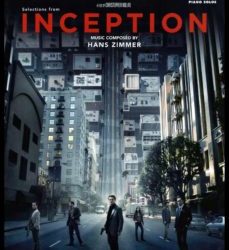
Sheet Music Download here.
Inception: Musik aus dem Kinofilm
ist der Soundtrack zum gleichnamigen Film aus dem Jahr 2010 unter der Regie von Christopher Nolan , der bei Reprise Records am 13. Juli 2010 veröffentlicht wurde. Hans Zimmer hat den Film komponiert und damit seine dritte Zusammenarbeit mit Nolan nach Batman Begins und The Dark Knight markiert .
Produktion
Laut Zimmer ist der Soundtrack für Inception „ein sehr elektronischer Score“. Nolan bat Zimmer, die Partitur zu komponieren und fertigzustellen, während er den Film drehte. Der Komponist sagte: „Er wollte meine Vorstellungskraft auf die bestmögliche Weise entfesseln“. An einem Punkt, als Zimmer die Partitur komponierte, integrierte er einen Gitarrensound, der an Ennio Morricone erinnerte, und war daran interessiert, dass Johnny Marr , ehemaliger Gitarrist der einflussreichen 80er-Rockband The Smiths , diese Rollen spielte.
Zimmers berichtete Inspiration war, einen Synthesizer-Track zu finden, den er ähnlich wie Marrs Gitarrenstil geschrieben hatte. Nolan stimmte Zimmers Vorschlag zu, und dann wandte sich Zimmer an Marr, der sein Angebot annahm. Marr verbrachte vier 12-Stunden-Tage damit, an der Partitur zu arbeiten, und spielte auf einer 12-saitigen Gitarre Noten, die von Zimmer geschrieben wurden.
Zur Inspiration las Zimmer Gödel, Escher, Bach: An Eternal Golden Braid von Douglas Hofstadter , weil es „die Idee der Verspieltheit in der Mathematik und der Verspieltheit in der Musik“ verband. Zimmer hat keinen temporären Score zusammengestellt , aber „hin und wieder haben sie angerufen und gesagt, wir brauchen hier eine Kleinigkeit. Aber das war ok, weil viele der Musikstücke nicht so szenespezifisch sind.
Sie fallen in kleine Kategorien“. Während er das Drehbuch schrieb, schrieb Nolan in Édith Piafs „ Non, je ne sorryte rien “ mit, nahm es aber fast heraus, als er Marion Cotillard besetzte , die gerade eine Oscar-gekrönte Rolle als Piaf in dem Film „ La Vie en rose “ von 2007 absolviert hatte . Zimmer überzeugte Nolan, es im Film zu belassen, und integrierte auch Elemente des Songs in seine Partitur; insbesondere die ikonische Blasinstrumenten-Fanfare des Films ähnelt einer verlangsamten Version der Instrumentierung des Songs.
Die Trailer zum Film enthalten speziell komponierte Musik von Zack Hemsey , die nicht auf dem offiziellen Soundtrack erscheint. Der Soundtrack wurde für mehrere Preise nominiert, darunter einen Oscar , einen Golden Globe , einen Grammy und einen BAFTA .
James Southall von Movie Wave verlieh der Partitur fünf Sterne und nannte sie „Zimmers beste Arbeit seit mehreren Jahren“, und Jim Lochner von Film Score Click Track, der sagte, „Inception ist eine aufregende und abgefahrene musikalische Fahrt“, vergab die Auszeichnung die Punktzahl viereinhalb von fünf Sternen.
Songverzeichnis
Die gesamte Musik wurde von Hans Zimmer komponiert .
No.TitleLength1."Half Remembered Dream"1:122."We Built Our Own World"1:553."Dream Is Collapsing"2:284."Radical Notion"3:435."Old Souls"7:446."528491"2:237."Mombasa"4:548."One Simple Idea"2:289."Dream Within a Dream"5:0410."Waiting for a Train"9:3011."Paradox"3:2512."Time"4:35Total length:49:13
No.TitleLength13."Projections"7:0414."Don't Think About Elephants"5:35Total length:12:39
Hans Zimmer Biographie
Geburtsname: Hans Florian Zimmer
Hans Florian Zimmer ist ein deutscher Filmkomponist und Executive Score Producer. Er hat Musik für über 100 Filme komponiert, darunter Rain Man (1988), The Lion King (1994), Crimson Tide (1995), The Prince of Egypt (1998), Gladiator (2000), The Last Samurai (2003), The Da Vinci Code (2006), Frost/Nixon (2008), The Dark Knight (2008), Sherlock Holmes (2009) und Inception (2010).
Zimmer verbrachte den frühen Teil seiner Karriere im Vereinigten Königreich, bevor er in die Vereinigten Staaten zog. Er ist Leiter der Filmmusikabteilung der DreamWorks Studios und arbeitet über die von ihm gegründete Firma Remote Control Productions mit anderen Komponisten zusammen.
Seine Werke zeichnen sich durch die Integration elektronischer Musikklänge in traditionelle Orchesterarrangements aus. Er hat zwei Grammy Awards, zwei Golden Globes, einen Classical BRIT Award und einen Academy Award gewonnen. Zimmer wurde auch auf Platz 72 der Liste der Top 100 lebenden Genies eingestuft.
Read the full article
0 notes
Text
'Todo lenguaje, todo sistema formal, todo programa de ordenador, todo proceso de pensamiento, llegan, tarde o temprano, a la situación límite de la autorreferencia: de querer expresarse sobre sí mismos'.
—Douglas R. Hofstadter, "Gödel, Escher, Bach: an Eternal Golden Braid."—
Esto es fundamental para entender la simplicidad de la 'crítica' de la fanaticada de lo que sea. Mientras más pronto se llega a la autorreferencia, menos argumentos existen para sustentar el postulado que se hace.
Algo inversamente proporcional a lo que decía Paco Prieto en sus múltiples talleres (carísimos de París, jijuelaver...): 'el escritor es tan rico como la cantidad de conexiones que tiene en su vida'. Cosa que, en cierta medida, se corrobora y se refuerza con lo que dice Hofstadter (sí, Prieto lo decía desde hace 40 años, más o menos.)
A mayor cantidad de información y referentes reconocibles, más fácil es hacer que se entienda un argumento dado, por complejo que sea el concepto inicial.
Suena raro mas es verdad: si se lo que se busca es hacerse entender, primero se debe entender MUY BIEN el punto de partida (el concepto específico) y luego entender a la audiencia (conocerla no basta), para así encontrar todas las conexiones posibles entre ese 'punto' y SUS referentes. Mientras más referentes reconocibles se incluyan en la exposición del concepto, más sencillo será explicarse con claridad.
Ojo: esto no quiere decir que haya que ser un tiranombres o crear tramas complejímas para explicar algo. Sólo se abroga porque mientras más complejo el tema, más referentes comunes se incluyan para bien de ambas partes (emisora y receptora).
Otra cosa, recordemos que cuando terminamos de exponer una idea y llegua el momento de encarar las dudas, la pregunta correcta es:
¿Me explique?
Y no '¿me entendiste?'
Porque la carga de responsabilidad está en quien expone la idea y no en quien le escucha.
Y bueno, todo esto a raíz de tener una semana cucha, llena de críticas a todo donde lo primero que sucede es que quien critica, hace autorreferecia en menos de un párrafo: 'a mí por eso me gusta, o me caga o me confunde o me emperra'... y se sueltan rollos largos y complejos por confusos que no son más que entelequias que se hacen para justificar su gusto como el único válido o validador.
Por ejemplo, el final de las aventuras de Sabrina no es 'malo'... es anticlimático, como era de esperarse (tengo testigos).
Porque el clímax de la serie se da justo durante el final de la tercera temporada cuando todo mundo captó que la siguiente sería dedicada al Horror Cósmico y como todo relato de este tipo (y la mejor novela acerca de Belascoarán), en ellos 'no habrá final feliz'.
En fin, mucho rollo poy hoy. Ya luego le sigo a esto que veo en los grandes proyectos de horror contempóraneo (como el reciente de Del Toro y mi adorada Sabrina): la incapacidad de explicarse bien al público porque el equipo creativo no entiende el concepto rector de la historia.
Y ya.
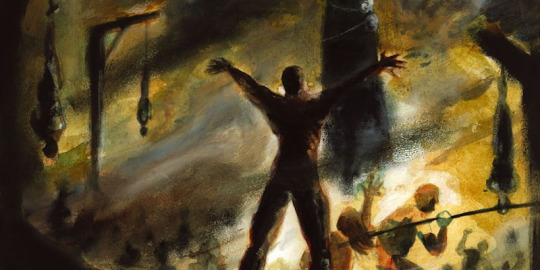
“The Unholy Worship” by Gawbryel.
0 notes
Text
Living’s Quote of the Day
Living’s Quote of the Day
Hofstadter’s Law: It always takes longer than you except, even when you take into account Hofstadter’s Law.— Douglas R. Hofstadter
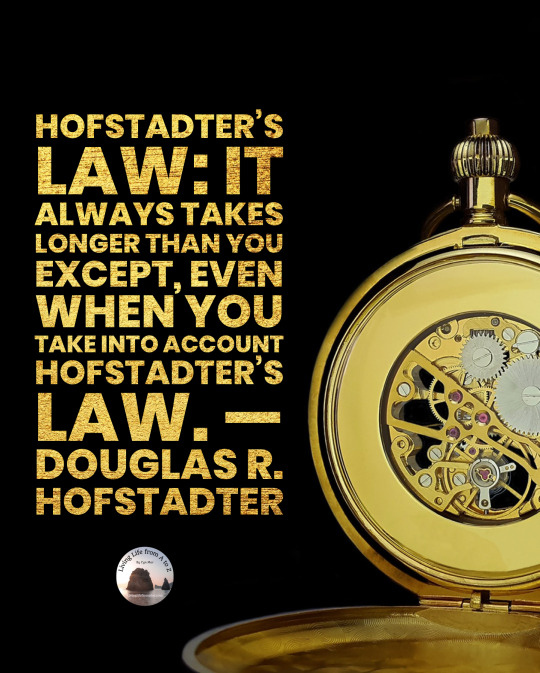
View On WordPress
0 notes
Text
Read Book I Am a Strange Loop -- Douglas R. Hofstadter
Download Or Read PDF I Am a Strange Loop - Douglas R. Hofstadter Free Full Pages Online With Audiobook.
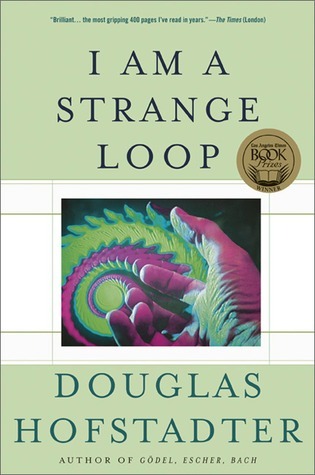
[*] Download PDF Here => I Am a Strange Loop
[*] Read PDF Here => I Am a Strange Loop
0 notes
